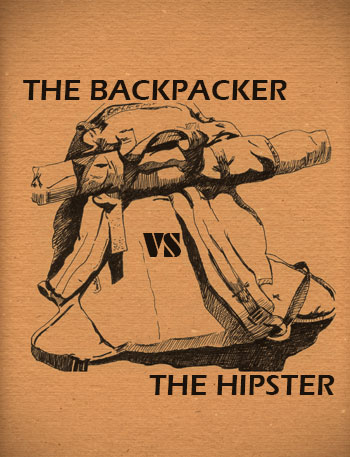 It's been said that CHANGE is inevitable, but it's rarely recognized that change is also INTENTIONAL. People often see their lives as a series of adaptations to changes in life they don't necessarily control or choose; but the truth still exists that change has a REASON (or a CAUSE for the philosophy majors reading this). Change is initiated by a series of decisions and actions; therefore, it is a part of our collective choices and actions over a period of time that influence CHANGE around us. If we apply this to EVERY FACET OF LIFE we encounter, it can help us to understand how cultures change over time. Hip Hop is no different, yet each generation hangs on to their definition of Hip Hop as a holy grail that none should dare challenge. Let's travel the timelines of Hip Hop history and see the logic in our sometimes misguided sense of cultural integrity.
It's been said that CHANGE is inevitable, but it's rarely recognized that change is also INTENTIONAL. People often see their lives as a series of adaptations to changes in life they don't necessarily control or choose; but the truth still exists that change has a REASON (or a CAUSE for the philosophy majors reading this). Change is initiated by a series of decisions and actions; therefore, it is a part of our collective choices and actions over a period of time that influence CHANGE around us. If we apply this to EVERY FACET OF LIFE we encounter, it can help us to understand how cultures change over time. Hip Hop is no different, yet each generation hangs on to their definition of Hip Hop as a holy grail that none should dare challenge. Let's travel the timelines of Hip Hop history and see the logic in our sometimes misguided sense of cultural integrity.
LET'S BRIEFLY GO, "BACK IN THE DAY"
When Hip Hop was born in the Bronx, and Kool Herc could be seen spinning on Sedgwick Ave; many claimed this new movement was merely a phase of a generation, and its style of music would not last the tide of more intricately composed records that boasted a higher level of musicianship. No one could see how these art forms would all come together and define not only a generation; but a movement that would spread its style, charisma and message across a whole globe. The world was changing from the most unlikely of places and, for some reason; no one could shift the tide otherwise.
As the years went on, and both social acceptance and business opportunities grew for this newborn culture, it began taking form. It became all about BEATS, RHYMES and LIFE. It was the streets anthem, the suburbs entertainment and the world's new voice. Not only had Hip Hop thrived through all of its opponents; but it began spurring its own movements such as the Universal Zulu Nation, Ill Crew Universal, Rock Steady Crew and many more. People found identity, purpose and reason to grow in this culture.
With every growth comes pain, and Hip Hop was no stranger to those pains. One notable pain was the coastal "wars" of the 90's that were spawned from media hungry moguls and their thirst for higher ratings along with passionate enthusiasts on both sides that clung to their corner of the RAP GAME. The East Coast boasted the culture's birth while the West Coast boasted its growth. Both sides being EQUALLY correct in their own respective views; yet they weren't able to see beyond the pile of news reports, magazine covers and constant bickering of rap beefs. It culminated in two of the most tragic deaths to Hip Hop's biggest icons both in music and culture, and it would resonate a need for unity and nonviolence on both sides of this media-fueled frenzy. In the midst of all this, one question became the common debate within the culture, "What is REAL Hip Hop?"
ENTER THE AGE OF THE HYPE MAN
While the 90's progressed, and the beef was laid to rest; the Hip Hop business begun churning the wheels of the momentum into high gear. The coasts began working together; collaborations between the best on both sides expanded the reach of the music and changed its composition once again. With the south rising up through the ranks and artists on all coasts experimenting; the music changed and some didn't really think it was for the best interest of the culture. This group of people who vehemently opposed simple lyrics and beats claimed the business was drowning out the real artists with pop versions of rap music and investments into artists who, seemingly, had no qualms with expressing their derogatory lifestyle over a record for profit. The elitists, or BACKPACKERS, were flying off handles virtually picketing any growth of what was quickly becoming the VARIOUS schools of rap music.
There's no doubt that technology played a huge part of the new subgenres in rap music. Armed with Autotune and some catchy phrases; it seemed like the rapper had retired and his hype man was now the main event. Backpackers fought this trend for years and lost the fight until they were out of sight to the general public. To them, all hope had been lost for this music, and for lack of a better phrase, HIP HOP WAS DEAD... or was it?
IS HIP HOP DEAD OR NOT?
For the backpacker, Hip Hop is a culture that has lost its identity. It is a people who have gone astray and have no appreciation for the artistic integrity of the art forms it represents. The elitist in them says that the godfathers of this culture and their original intent is being disrespected by the simplification of musicianship; the forgetfulness of its responsibility to the community; and the glorification of a base life that serves no purpose but to enslave the people once again into a mindset of addiction and self-destructiveness. That's a lot to chew on, huh?
But the problem is that the hipster sees Hip Hop as a way to express their OWN way of seeing life. Just like many people;, they don't feel the obligation to deliver the same messages, much less deliver them the same way someone else tells them it should be done. To them, the backpacker IS their oppressor, who calls them out as "WATERED DOWN" and claims they are not "REAL HIP HOP." While they may feel the very same about political issues, cultural needs and value their family; their style of music does not warrant respect from the backpacker, thus they return the favor and tell the backpacker, "YOU ARE OUT OF TOUCH WITH TODAY."
The simplest truth is often-times the most accurate, and in this instance, both the backpacker and hipster are equally correct AND incorrect. The simple truth is that Hip Hop changed according to the demands and needs of its people. Follow us down the final logic here.
When Hip Hop was born, it was about partying as much as it was about uniting a community of rival gangs and other city bred problems that existed in the 70's Bronx era. While artists wanted to convey a message, the fact is, Hip Hop STARTED as party music. It told us it was OK to have a good time and not stress what problems you had with others. It also told us we could party but still gain knowledge and degrees because that was also important for personal growth. Both the backpacker and the hipster embody this… UNITED.
The backpacker having gone through an era when the music and culture was going through a tough growing period that changed many lives; forgot that sometimes it's OK to keep it simple and enjoy the moment. The backpacker got serious, justifiably so, but they lost touch with what it really meant to let go and enjoy the moments in life without worrying about the myriad of problems that would take many concerted efforts to correct.
The hipster being young and energetic about life, paraded in chain linked skinny jeans and undersized shirts because sometimes it's just FUN TO BE YOU! While this is SO true on so many levels, they forgot that sometimes the community needs more than a good time when light bills aren't getting paid. Sometimes people need to come together and make CONCERTED EFFORTS to unify people even when it's not exciting or tedious to do so. Their apathy for community service and their disdain for the backpacker make them an easy scapegoat for supporters and critics alike.
At some point, both the backpacker and hipster must understand one VERY FUNDAMENTAL CONCEPT. Hip Hop was born from a STRONG WILL and ABSOLUTE DISREGARD for what others said it couldn't be. We are no different in that sense, young and new alike. Both the backpacker and hipster will be here to stay and continue to ride the wheels of conscious cycles that will change our music back and forth based on the needs of that time and those who read the cycles and appreciate the purpose will benefit from it. From this writer's perspective… Hip Hop NEVER died… we have ALWAYS BEEN HERE. Our needs changed and are once again changing. Let's enjoy the tides and make good music.



